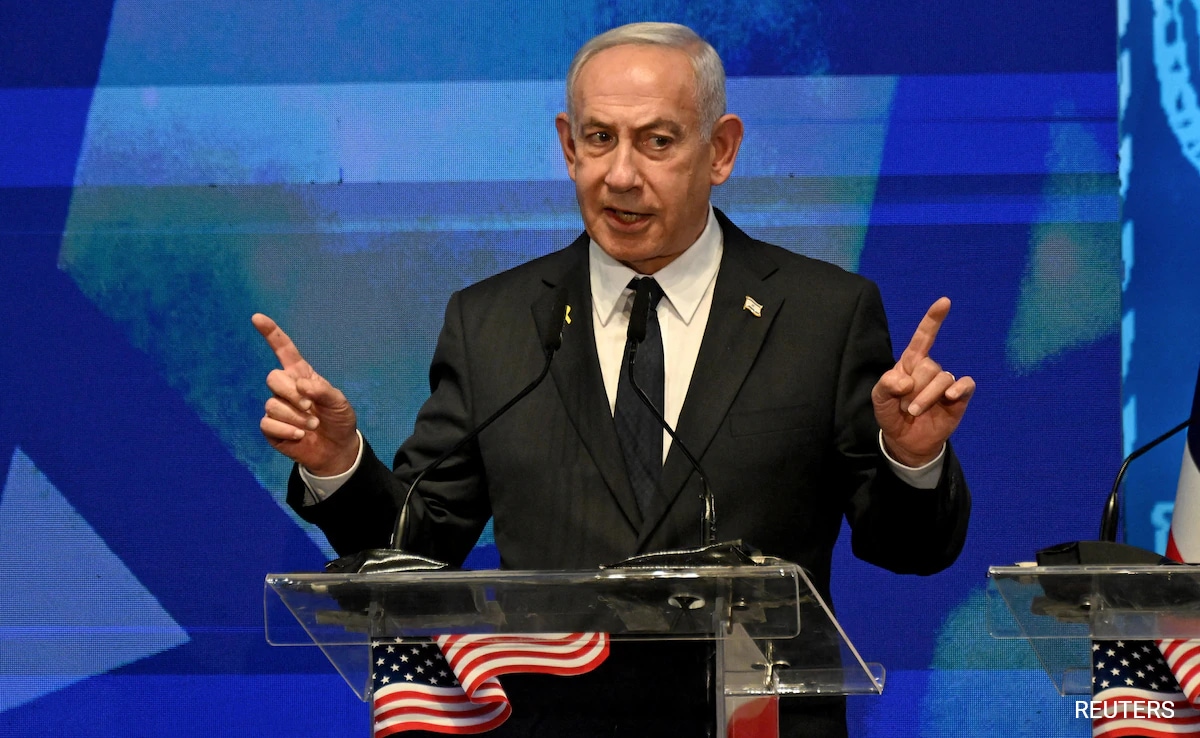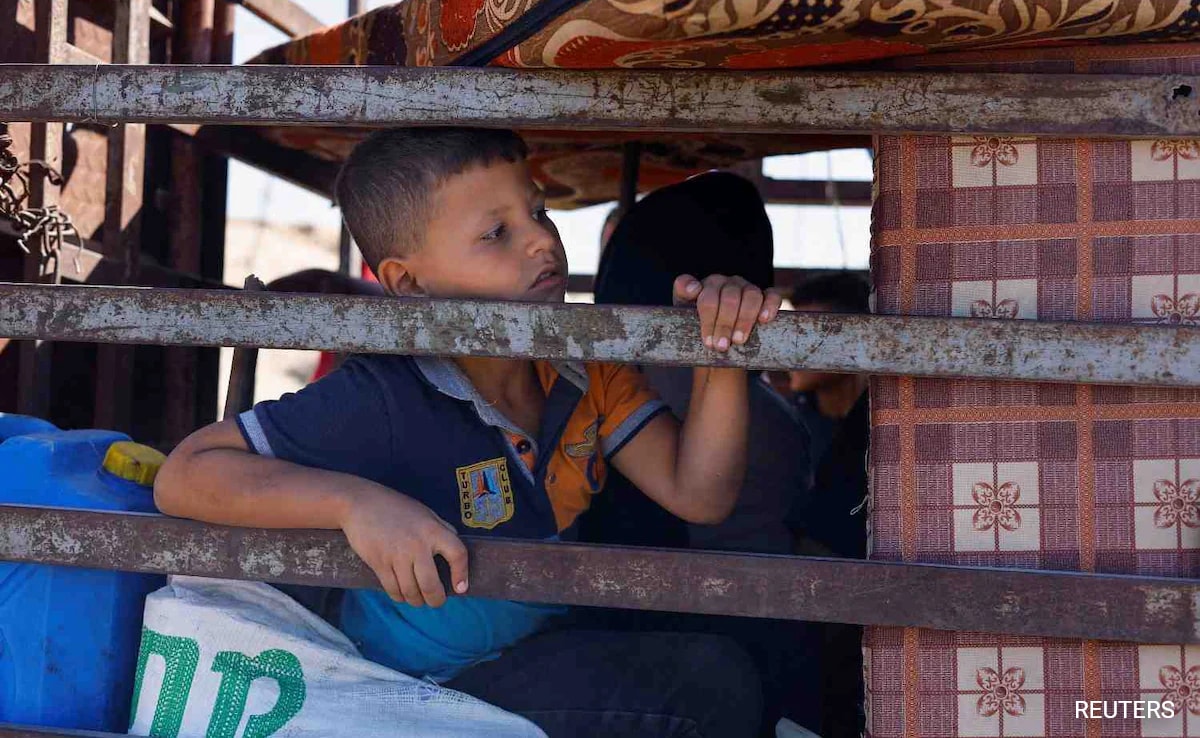In a fiery speech marking the end of his European tour on Saturday, President Biden called Russian President Vladimir Putin a “dictator,” saying, “For God’s sake, this man cannot remain in power.” The unscripted remark at the end of a 27-minute speech reverberated around the world and sparked a terse response from the Kremlin. The White House later clarified that Biden wasn’t calling for a regime change — which would be a major reversal of U.S. policy — and meant only that Putin should not be allowed to exercise power over his neighbors or the region.
A Kremlin spokesman told state news agencies that it is “not for Biden to decide. The president of Russia is elected by Russians.”
The Russian onslaught continued Saturday with two powerful rockets striking Lviv. The western Ukrainian city had been largely spared from attacks during the first month of the war, making it something of a haven for Western diplomats and others fleeing there from Kyiv and cities under heavy siege. Russian forces also entered Slavutych, a northern city of about 25,000 people that houses workers from the nearby Chernobyl nuclear power plant. Though occupied by Russian forces, Slavutych “remains a Ukrainian city, under Ukrainian flags,” the mayor said.
Here’s what to know
The strikes in Lviv came a day after Russia asserted that it had ended its first phase of the conflict, saying it would be shifting its attention to eastern Ukraine’s disputed territories. Pentagon intelligence also said that Russia had halted ground operations aimed at Kyiv. A U.S. think tank, however, expressed skepticism Saturday that Russia’s war aims have changed.Ukrainian officials say their forces have killed seven generals on the battlefield. If true, the deaths of so many generals in one month, alongside more senior Russian army and naval commanders, exceeds the attrition rate seen in the worst months of the bloody nine-year war fought by Russia in Chechnya, as well as Russian and Soviet-era campaigns in Afghanistan, Georgia and Syria.For weeks, the Ukrainian city of Chernihiv, north of the capital, has been under near-constant Russian attack, almost entirely cut off from power, water, food and gas amid constant artillery fire. One resident has shared with The Washington Post the daily struggles that he and others face.The Washington Post has lifted its paywall for readers in Russia and Ukraine. Telegram users can subscribe to our channel for updates.UNDERSTANDING THE RUSSIA-UKRAINE CONFLICT
Amid bombs and gunfire, Ukrainian musicians bring classical music to the sheltered
Return to menuKharkiv Music Fest, an international classical music festival, was scheduled to start on March 26. Amid the war in Ukraine, musicians played from the subway. (Video: Maria Avdeeva via Twitter, Photo: Maria Avdeeva via Twitter)
In a city rattled by thunderous warfare, the refrain of three violins, a cello and a bass gave a melodic break to Kharkiv residents sheltering underground Saturday.
Kharkiv Music Fest organizers said they improvised after Russia’s invasion of Ukraine halted their original plans, including a recital by French pianist Lucas Debargue that was to be held in the grand hall of the Kharkiv Philharmonic on Saturday. Instead, five musicians facing the threat of injury or death during Russian shelling descended to a subway station and a business’s basement, where the audience of war refugees had been taking shelter.
The group began with the Ukrainian anthem, drawing audience members to hold their hands to their hearts.
The songs performed were adapted to fit a theme of the connections between Ukrainian and Western European culture, art director Vitali Alekseenok said. The musicians played pieces from Bach compositions to Ukrainian folk songs, and hundreds of people from the young to the elderly watched, sometimes holding one another.
“Music can unite,” Alekseenok said, “and it’s important now for those who stay in Kharkiv to be united.”
Kateryna Lozenko, the festival’s communication manager, left Kharkiv after 10 days of strikes and wasn’t there for the performances Saturday. She hadn’t felt like she would be able to return to her city but is feeling more optimistic.
“For those who stayed, it’s like a breath of fresh air,” she said of the music, “a piece of usual life in this terrible war that ruined not only our city but our lives.”
Updates continue below advertisement
Here’s the status of Ukrainian cities under Russian attack
Return to menuKyiv: Russian troops “continued their unsuccessful efforts” to move into positions from which to attack or encircle the Ukrainian capital, Kyiv, the Institute for the Study of War, a D.C.-based think tank, said in a Saturday battlefield assessment. That’s despite recent claims by Moscow that the primary aim of the invasion is to capture two separatist regions in eastern Ukraine — not to seize the capital and overthrow the government. The Kyiv area still has the largest single concentration of Russian ground forces in Ukraine, the military analysts said.Mariupol: Fierce fighting continues in this strategic port city, with Ukrainian President Volodymyr Zelensky likening the destruction to “what we all saw in Aleppo” — a reference to the northern Syrian city battered by Syrian and Russian forces during the civil war in Syria. U.S. military analysts say they think Russian forces “will likely gain control of the city in the relatively near future” even though Kremlin units are suffering “significant losses” in the ongoing siege. Chernihiv: The Russian military continues to concentrate replacements and reinforcements to fight for positions on Kyiv’s outskirts, including its attempt to complete the encirclement and reduction of the northern Ukrainian city of Chernihiv, U.S. military analysts say. Residents of the city reportedly have no electricity, heating or water.Slavutych: Russian forces have entered this northern city close to the Chernobyl nuclear site. The mayor said in a video address late Saturday that the town was occupied and under a 7 a.m.-to-7 p.m. military curfew, with Russian forces set to search buildings for weapons. Video posted Saturday and verified by The Washington Post shows protesters, some carrying Ukrainian flags, in the city square during a large demonstration against the Russians.Kharkiv: Ukrainian forces continue to conduct limited counterattacks, most recently near Kharkiv. Unrelenting Russian shelling has forced residents to seek shelter underground as houses and neighborhoods burn.Kherson: Russia appears to have at least partially lost control of the southern Ukrainian city on the Black Sea, according to Western defense officials and military analysts, the first of a handful of midsized cities Russia has struggled to occupy since the invasion began. Lateshia Beachum and Amy Cheng contributed to this report.
Updates continue below advertisement
Biden says Putin ‘cannot remain in power’ in forceful speech in Poland
Return to menuWARSAW — President Biden forcefully denounced Russia’s invasion of Ukraine on Saturday, casting Moscow’s aggression as “the test of all time” for democracy before ending his sunset speech here by saying that Russian President Vladimir Putin “cannot remain in power.”
“For God’s sake, this man cannot remain in power,” Biden said, in an unscripted remark that came at the end of his roughly 30-minute address.
The White House raced to clarify his comment, issuing a statement saying that Biden had not actually meant what he’d said.
“The president’s point was that Putin cannot be allowed to exercise power over his neighbors or the region,” a White House official said in a statement. “He was not discussing Putin’s power in Russia, or regime change.”
Even aside from that remark, Biden’s speech in Warsaw — the capstone of a three-day trip to Europe — marked the most defiant and aggressive speech about Russia by an American president since Ronald Reagan, and came as the war between Russia and Ukraine entered its second month.
Updates continue below advertisement
.png)











 English (United States) ·
English (United States) ·  Turkish (Turkey) ·
Turkish (Turkey) ·